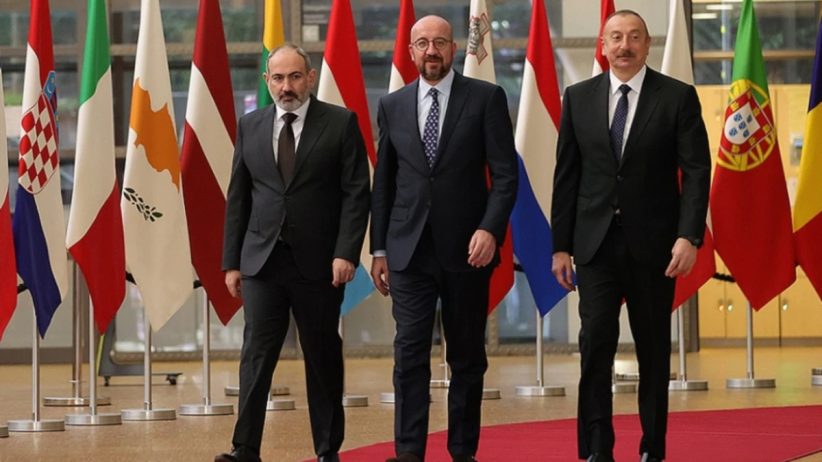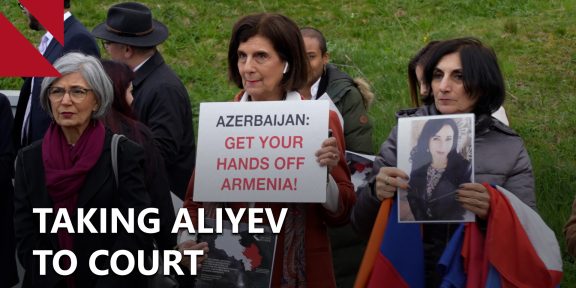By Mark Dovich
Armenian Prime Minister Nikol Pashinyan, European Council President Charles Michel, and Azerbaijani President Ilham Aliyev will meet in Brussels on Sunday for a trilateral meeting, Pashinyan’s office announced Thursday.
Pashinyan and Michel will also hold a separate one-on-one meeting, the press release added.
The three leaders met most recently in Brussels early last month, where talks reportedly stretched on for over four hours.
Following the meeting, Michel released a lengthy statement, saying that Aliyev and Pashinyan had agreed to direct their respective foreign ministries to begin preparing a peace treaty, as well as to convene a joint border delimitation commission by the end of the month.
Since then, there has been little apparent progress on a peace treaty, and the long-discussed border commission still has yet to meet.
Baku and Yerevan traded accusations over the commission this week, when Aliyev said that Armenia has so far canceled scheduled meetings of the border group twice, a claim that an Armenian Foreign Ministry spokesman has denied.
“This is very disappointing,” Aliyev said at a press conference in Baku Wednesday. “Such an irresponsible position, of course, is worrying.”
He went on to say that Armenia and Azerbaijan had previously reached agreements to convene a joint border delimitation commission on April 29 and May 7-11, only to have Armenia back out at the last minute.
Vahan Hunanyan, a spokesman for Armenia’s Foreign Ministry, hit back against Aliyev’s accusation in a statement Thursday, saying that “the Armenian side has not canceled or rejected any meeting.”
Foreign Minister Ararat Mirzoyan and Security Council Secretary Armen Grigoryan have both said in recent days that the border commission has not yet met due to “technicalities,” without further explanation.
Much daylight also appears to remain between the two sides on the 5+6 proposal, which refers to five points put forward by Azerbaijan in March to form the basis of Karabakh peace talks, plus six points issued by Armenia in response last month.
Armenia has consistently said it accepts Azerbaijan’s five points, but felt the need to add six of its own because Baku’s proposal did not address all of Yerevan’s concerns. Azerbaijan has so far not commented publicly on Armenia’s points.
Azerbaijan’s proposal entails the mutual recognition of territorial integrity, mutual confirmation of the absence of territorial claims, and mutual obligation not to use force in resolving disputes, as well as delimiting and demarcating the border and unblocking transport connections.
Armenia’s plan calls for mediation by the Minsk Group and underscores that “guaranteeing the security of the Armenians of Nagorno-Karabakh, respecting their rights and freedoms, and also determining the final status of Nagorno-Karabakh are fundamental for the Armenian side.”
However, Azerbaijan has repeatedly rejected the involvement of the Minsk Group, arguing that its victory in the 2020 war in and around Karabakh renders the organization’s mandate moot.
The Minsk Group is a body under the Organization for Security and Co-operation in Europe that is co-chaired by France, Russia, and the United States and is meant to encourage the peaceful resolution of the Karabakh conflict.
The recent collapse in relations between Russia and the West over Ukraine has thrown the group’s future in serious doubt.
















